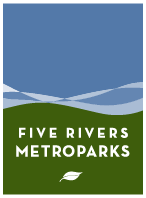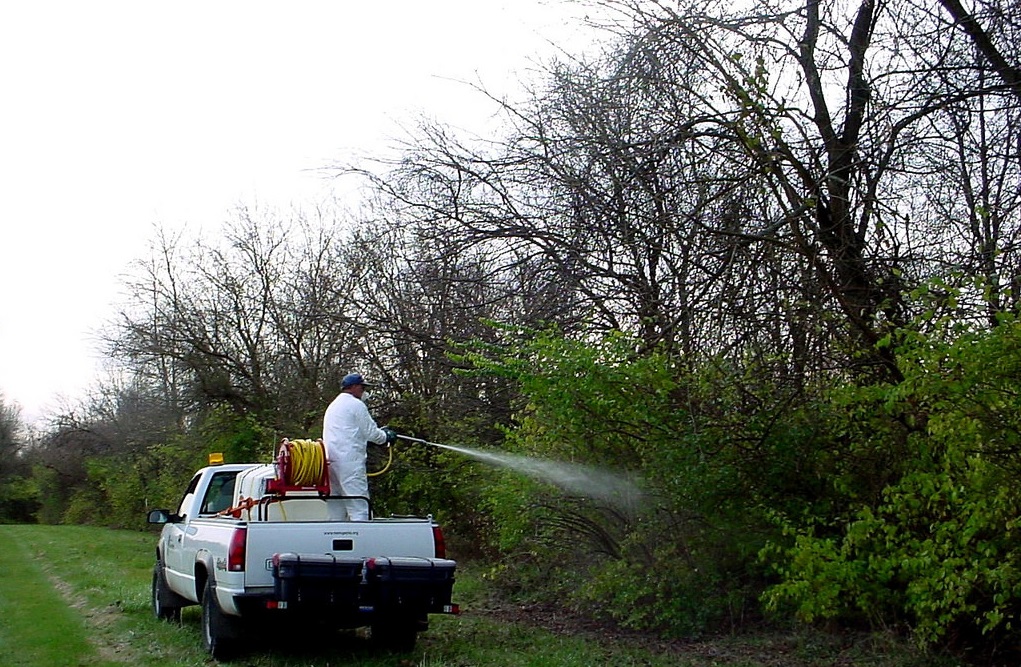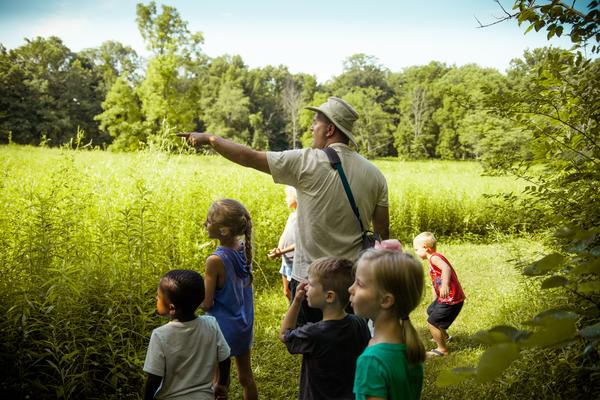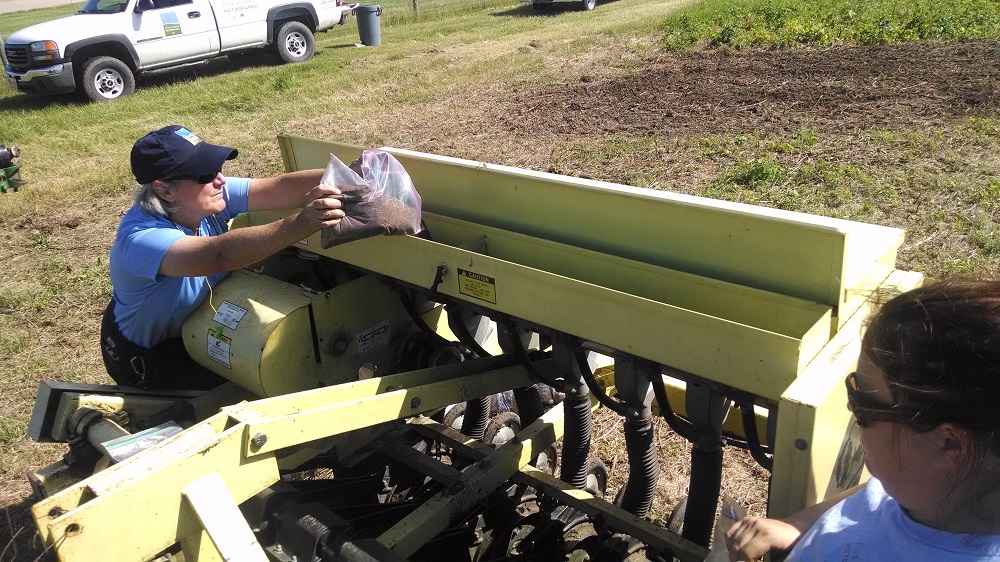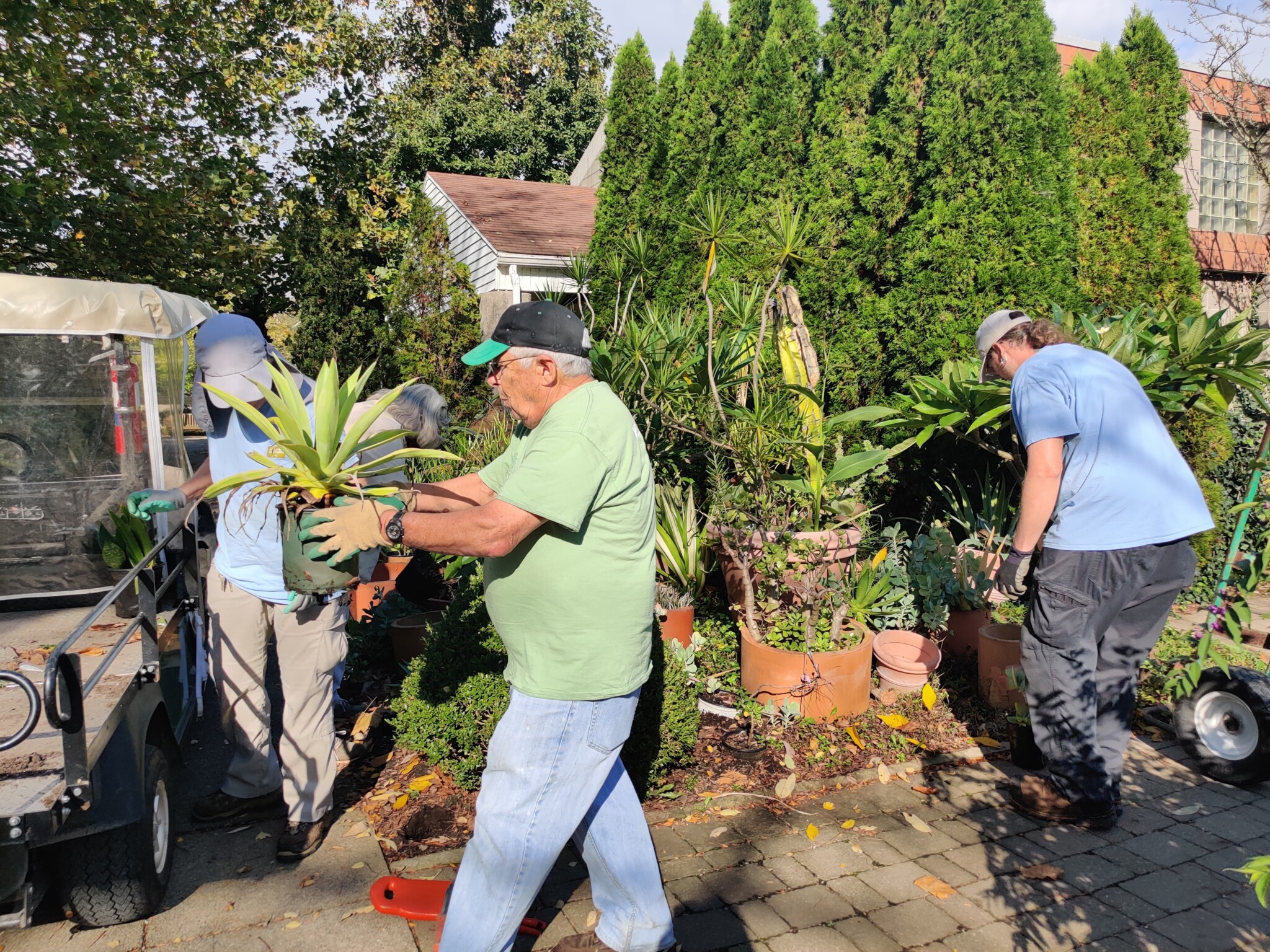Published September 29, 2017
Sometimes Conservation Requires A Serious Dose of Eradication
Heads up! This article was published 7 years ago.
IT’S AN ONGOING EFFORT TO PROTECT OUR REGION’S NATIVE PLANT SPECIES
Five Rivers MetroParks is gearing up to deliver its annual honeysuckle prescription. Left to grow wild, this invasive plant chokes local ecosystems. MetroParks conservation staff are getting to the bottom of the problem, with a solution that hitches a ride with the nutrients that honeysuckle take from leaves to roots every fall to survive winter.
Aside from putting honeysuckle out of our misery, MetroParks staff will be busy this autumn with such activities as seed collection, tree planting and wetland rapid assessments—all key parts of the agency’s comprehensive conservation strategy.
After harvesting seeds from select species of oak and hickory and from several varieties of grass and flowering plants, conservation staff and volunteers clean and either plant the seed in greenhouses or put them in cold storage. We use seedlings and stored seeds to restore biodiversity in a particular area, jump-start prairie plantings, create native landscaping and generally preserve the genetic viability of important plants. This fall, with the help of volunteers, we will plant approximately 4,000 oaks and hickories on:
- October 14, Great Miami Mitigation Bank
- October 21, Germantown MetroPark
- October 28, DeWeese Parkway
A rapid wetland assessment also is on the autumn to-do list. Rapid assessments—short expeditions to quickly determine the health of key ecosystems—are one of the newest tools in Five Rivers MetroParks’ conservation toolbox. In 2016, we completed a rapid assessment of all 130 of MetroParks’ grasslands, evaluating their condition based on percentages of grasses, flowering plants and woody species. In the wetlands assessment, technicians will look for the presence (or absence) of wildlife, invasive plants and aquatic plant species and will determine the condition of neighboring habitats.
Rapid assessments give us hard data to make targeted recommendations, such as removing invasive plants, restoring native shrubs or trees and performing levee maintenance. These assessments not only are important health checks but they improve MetroParks’ stewardship. “From this data, we can better allocate resources such as time and money for the management of our grasslands and wetlands,” says Meredith Cobb, a MetroParks conservation technician.
